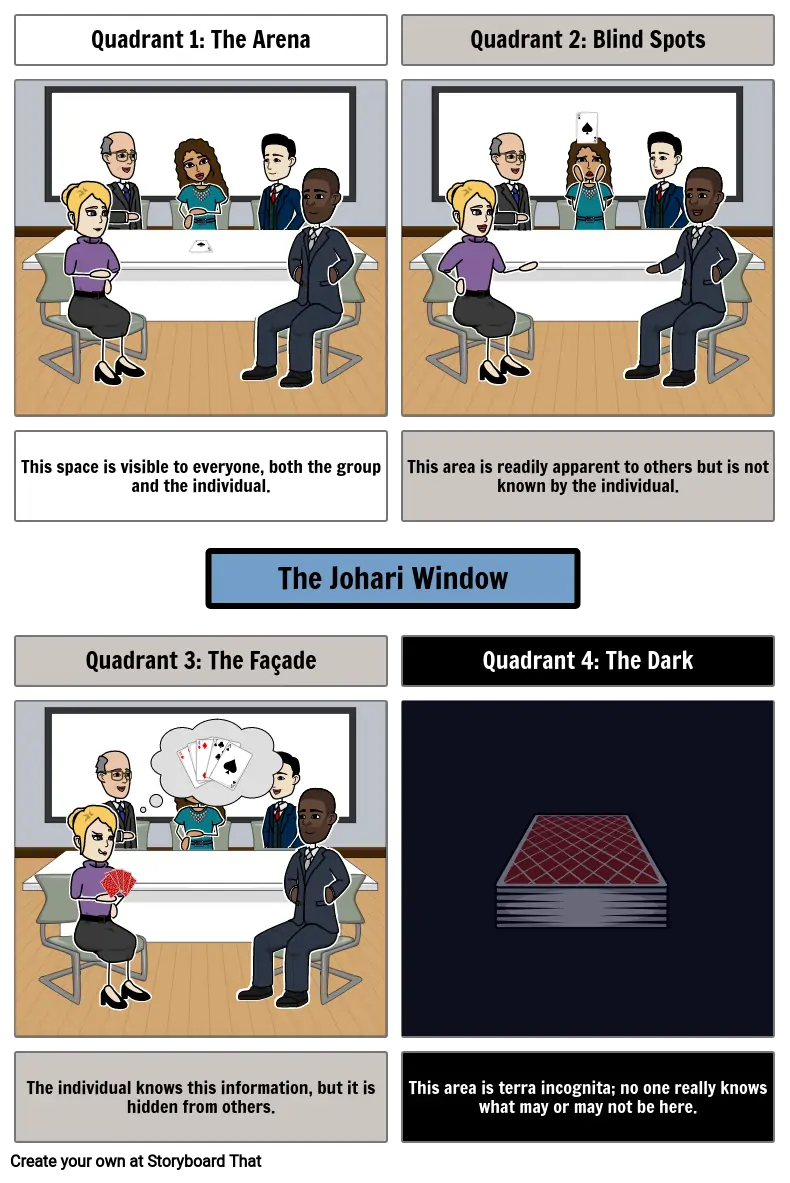
Johari Window
is a technique that helps improve self-knowledge and interaction with other people, based on understanding how a person perceives himself and how others see him. This tool was developed by psychologists Joseph Luft and Harry Ingham, and its essence lies in dividing information about a person into four quadrants that represent different aspects of self-knowledge:
Open zone (known to everyone)
This is the part of the personality that is known to both the person and others. This is the information that a person consciously shows, for example, character traits, behavior or skills that he demonstrates in society.
Blind zone (known to others, but not to himself)
This category includes what others notice in a person, but he himself is not aware of. This can be behavior, habits, character traits that are visible to others, but the person himself does not notice.
Hidden zone (known to himself, but not to others)
Here are those aspects of the personality that a person is aware of, but does not show to others. These may be hidden thoughts, feelings, fears, secret desires or personal goals that a person prefers to keep secret.
Unknown Zone (unknown to anyone)
This quadrant includes aspects that are unknown to both the person and others. These may be hidden talents, potential, subconscious motives or future opportunities that have not yet been revealed.
Open Zone:
You know you like to cook, and your friends know it too because you often host dinner parties.
You strike up a conversation with strangers easily, and it’s obvious to everyone.
Blind Zone:
Your coworkers think you’re a great leader, but you’re unsure of your leadership skills and doubt that you’re capable of it.
You’re always in a hurry and interrupting others without realizing it, but others find it rude.
Hidden Zone:
You worry about the future, but you don’t tell even your closest friends about it.
You have a fear of public speaking, but you hide it so as not to appear vulnerable.
Unknown Zone:
Perhaps you have a hidden talent for drawing or writing that you haven’t discovered yet, and no one knows about it.
In an extreme situation, you can show leadership or organizational skills that you don’t even know about.
The purpose of using the Johari Window is to help people expand the Open Zone to better understand themselves and improve relationships with others through feedback and self-analysis.
Addition information:
Leave your email
and we will contact you soon